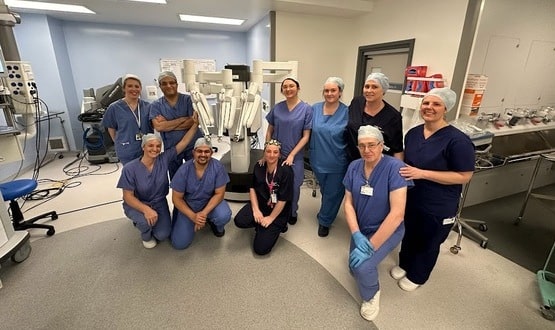Sheffield Teaching Hospitals NHS Foundation Trust has carried out the region’s first robotic-assisted surgery (RAS) hysterectomy for a patient with severe endometriosis, cutting the length of time needed for recovery compared to traditional surgery.
The endometriosis robotic-assisted hysterectomies at Sheffield Teaching Hospitals are being performed on the Da Vinci X robot.
The state-of-the-art surgery was performed using a robotic surgical system controlled by a team of specially trained doctors, nurses and anaesthetists. The average recovery time for a hysterectomy carried out traditionally is six to eight weeks. In comparison, the first patient to have a total hysterectomy via robotic-assisted surgery at Sheffield Teaching Hospitals said she was able to resume normal activities within a week.
In addition, the multi-armed surgical robot can speed up the time taken to carry out the operation. It enables the surgical team to perform intricate and delicate manoeuvres, including 360 degree rotation in tight spaces, beyond what a human hand could achieve.
Working from a console, positioned near the operating table, a surgeon controls the robot during surgery. They have a magnified, high-definition 3D view of the surgical site on a screen positioned in front of them, which also benefits the whole operating theatre team.
The first robotic hysterectomies were led by consultant gynaecologist Mr Karim Abdallah who described the advancement as a “remarkable achievement” for women’s health.
He said: “The successful introduction of this pioneering surgery is a great stride forward in improving the health and wellbeing of women living with benign yet debilitating gynaecological conditions.
“Sheffield (Teaching Hospitals) is the first in South Yorkshire to deliver this cutting-edge surgery which is set to help young, active women who have suffered for many years with common gynaecological conditions such as endometriosis.”
Last year saw creator of the Da Vinci robotic assisted surgery system, Intuitive, join forces with the Royal College of Surgeons of England to help shape the future development of robotic-assisted surgery.

